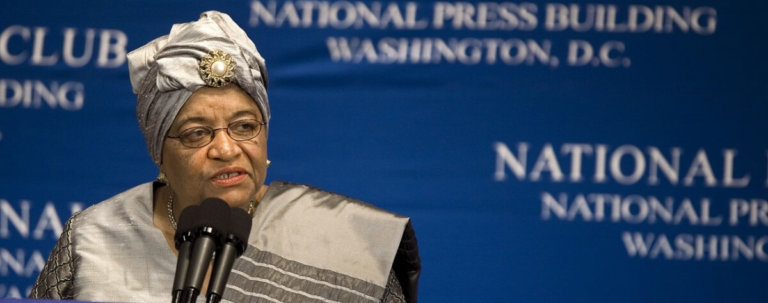QUIZ: Where did these African leaders study abroad at?
Study International Staff
01 Jan 2020

With a fast-growing middle class and a population boom, African students are increasingly going abroad to key study abroad destinations around the world for higher education.
Some would argue this is a trend started by the national leaders in the region, many of which have foreign qualifications from top institutions in the US, UK and Europe.
How well do you know the educational background of some of the continent’s most powerful people? Take our quiz below to find out!
 Cyril Ndegeya/AFP
Click to Flip
Cyril Ndegeya/AFP
Click to Flip
 Issouf Sanogo/AFP
Issouf Sanogo/AFP
 Shutterstock
Click to Flip
Shutterstock
Click to Flip
 Shutterstock
Shutterstock
 Shutterstock
Click to Flip
Shutterstock
Click to Flip
 Shutterstock
Shutterstock
 Wikimedia Commons
Click to Flip
Wikimedia Commons
Click to Flip
 Shutterstock
Shutterstock
 Shutterstock
Click to Flip
Shutterstock
Click to Flip
 Shutterstock
Shutterstock
 Sumy Sadurni/AFP
Click to Flip
Sumy Sadurni/AFP
Click to Flip
 Source: Shutterstock
Source: Shutterstock
 Amos Gumulira/AFP
Click to Flip
Amos Gumulira/AFP
Click to Flip
 Stephane De Sakutin/AFP
Stephane De Sakutin/AFP
 Dev Ramkhelawon/AFP
Click to Flip
Dev Ramkhelawon/AFP
Click to Flip
 Karel Prinsloo/AFP
Karel Prinsloo/AFP
 Timothy A Clarky/AFP
Click to Flip
Timothy A Clarky/AFP
Click to Flip
 Rodger Bosch/AFP
Rodger Bosch/AFP
 Timothy A Clary/AFP
Click to Flip
Timothy A Clary/AFP
Click to Flip
 Paul J Richards/AFP
Paul J Richards/AFP
 Seyllou Diallo/AFP
Click to Flip
Seyllou Diallo/AFP
Click to Flip
 Seyllou Diallo/AFP
Seyllou Diallo/AFP
Share:
Best university programmes to study in South Africa
South Africa takes steps to assure the quality of its doctorates